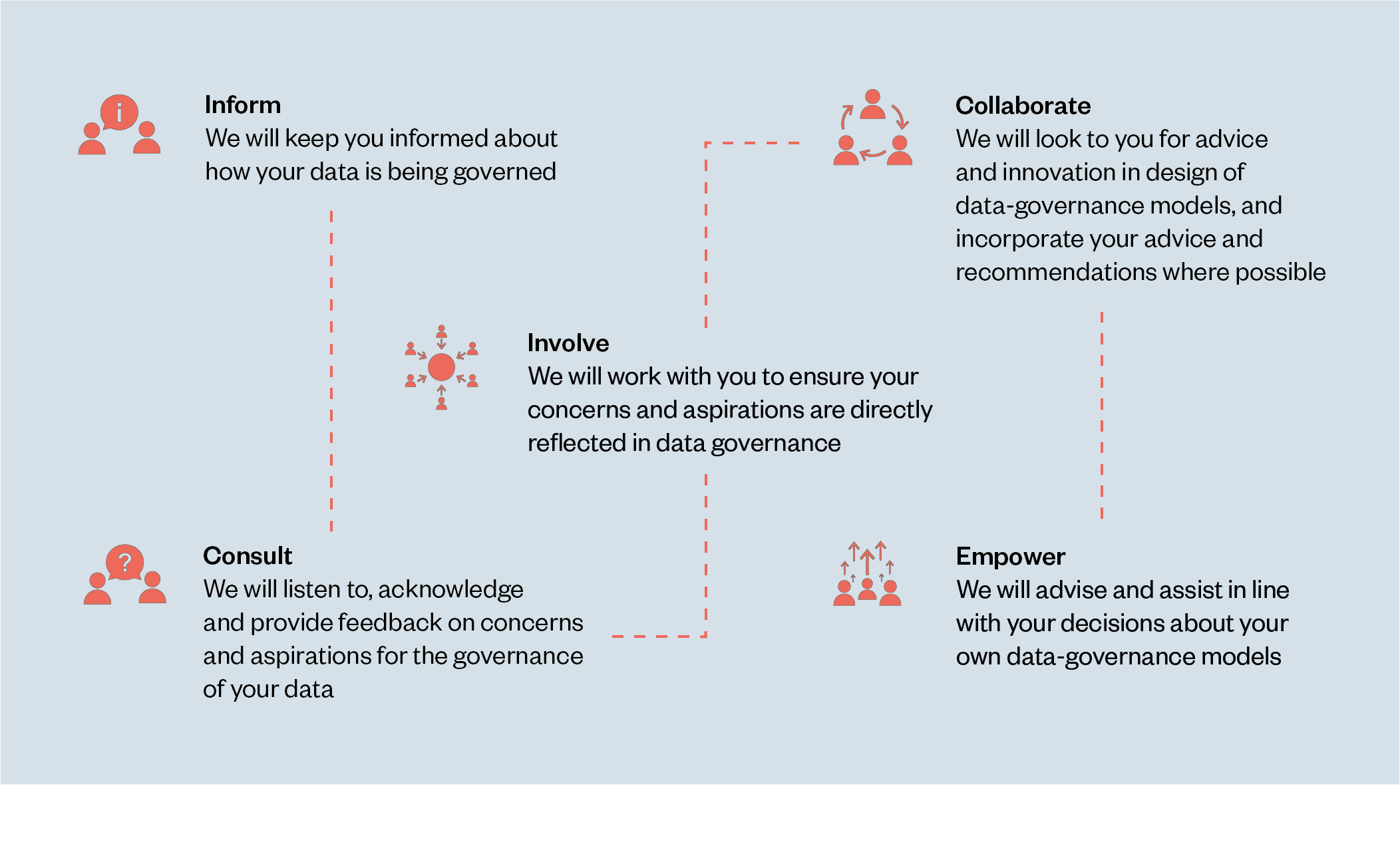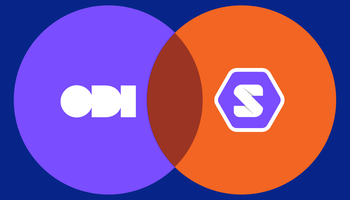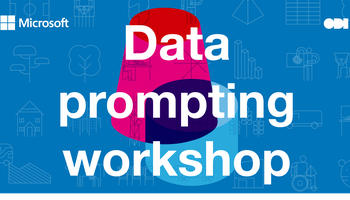
At the ODI, we want a world where people can meaningfully participate in the data economy. We want them to help shape how data is used to create positive outcomes for society, the environment and the economy. We describe the different ways of empowering people to play an active role in the data ecosystem as participatory data. The ODI is running a joint programme of work on participatory data in collaboration with Aapti Institute, which is supported by the Patrick J. McGovern Foundation. The programme is also working with King's College London and the Global Partnership for AI.
What is participatory data and why is it important?
Access to data helps us to tackle some of the biggest challenges facing society today, such as the climate crisis, fuel poverty and health inequalities. However, the majority of people affected by these issues are not meaningfully involved in collecting, using and sharing data about them. At present, when people do have some say, they commonly ‘exercise’ choice by actively withdrawing their consent for uses of data about them - a process that is often ineffective and insufficient.
This lack of meaningful participation in decisions about data - and how it is used - can create distrust. As we describe in our Theory of Change, there is a risk that failing to address people’s fears and legitimate concerns - such as about who has access to data and how it might be used – will prevent us from realising its full potential to change the world for the better. Further, participation ensures that the value of data is distributed across more people - for example, Citizen Space is an app used by public organisations to include more people in decision-making, like ensuring that electric vehicle charging stations are placed where they are most needed by citizens.
Empowering people in this way creates new opportunities to drive positive change. Initiatives that involve people in collecting, maintaining or sharing new datasets have already had an impact in protecting biodiversity and responding to crises and natural disasters, while Wikipedia, an encyclopaedia ‘created and edited by volunteers from around the world’, remains the largest repository of human knowledge. With the rapid advances in Artificial Intelligence and Machine Learning, now is a critical time to embed participatory data practices in the wider data economy, so new technological developments, like generative AI, are designed, developed and deployed with the participation of an inclusive set of stakeholders.
We think participation can:
- empower individuals and communities by actively involving them in data collection and decision-making processes, giving them a voice to shape policies, services, and initiatives that impact their lives.
- incorporate diverse perspectives and experiences to create inclusive and representative outcomes, promote social equity and mitigate biases.
- enhance data quality by incorporating contextual knowledge and insights, resulting in more accurate, relevant, reliable data and informed decision-making.
- increase people’s control over the data that relates to them, giving them a say over data collection, usage, and sharing, while respecting privacy rights and promoting transparency.
- enable more effective problem-solving to identify local priorities, challenges, and solutions, and to promote community-driven, sustainable resolutions.
- build trust and collaboration through open and inclusive communication, strengthening partnerships leading to more effective and sustainable interventions.
What does effective participation look like?
Just as we participate in different decisions in different ways in our daily lives - such as voting to decide on the governments of our nations or taking part in citizen juries - there are different forms of participation around or about data. We see opportunities for more participation at different levels of the data ecosystem:
- At the data level, people can be involved in the creation, maintenance, use and sharing of data. For example, citizen science initiatives like Zooniverse enable people to take part in real cutting-edge research in many fields across the sciences, humanities, and more. People can also decide how and when data should flow and why. Technical solutions like Solid Pods enable people to determine who can access data about them, and digital rights like data portability enable people to move data from one provider to another.
- At the organisational level, people can be involved in the governance of organisations that collect, maintain and share data. For example, data cooperatives like POSMO Coop enable people to collectively decide how data is stewarded and contribute data towards a common cause, such as for improving city mobility.
- At the policy level, people can be involved in determining the 'rules of the game', via methods like public consultations or citizen juries. An example is the Camden Data Charter, designed and upheld by residents; it guides how the council collects, processes and shares data ethically in Camden.
At each level, there are varying types - or degrees - of participation. Sherry Arnstein’s ‘ladder of citizen participation’, adapted by the Ada Lovelace Institute for data stewardship describes these best.

Participation is not always a solution for addressing harms and creating just data systems. Participation can be used tokenistically - and ‘participation-washing’ is a common concern in data systems and beyond. While the right level and type of participation will vary by context and preference, what participatory approaches to data have in common is recognition of the importance of local knowledge, lived experiences and engagement.
What our participatory data programme aims to achieve
At the ODI we work with companies and governments to create a world where data works for everyone. Aapti Institute works at the intersection between digital technology and society to build solutions that enhance societal impact, justice and equity.
Together, our joint participatory data programme will further these missions by:
- Making significant advances in the theory and understanding of participatory data, and the impact that participation can have.
- Working with organisations and governments to implement participatory approaches in different sectors and fields.
- Enabling existing organisations to understand how they involve the public in their work and how they can do so more effectively, particularly in AI.
This will build on our existing research, including on the concepts of ‘bottom-up’ data institutions, data portability and data trusts. We will also seek to drive new initiatives to support more participation around data as we have in the past, such as with Open Banking. We’ll support organisations from the public, private and third sectors to enable more participation around their services, similar to our work with INSIGHT that ensures patients have a meaningful say in how medical imaging data is shared and used. We will also continue to advocate for more meaningful participation in data ecosystems to funders, policymakers and other actors who can enable it to happen.
If you’re interested in learning more about or working on participatory data with us, please email [email protected].












